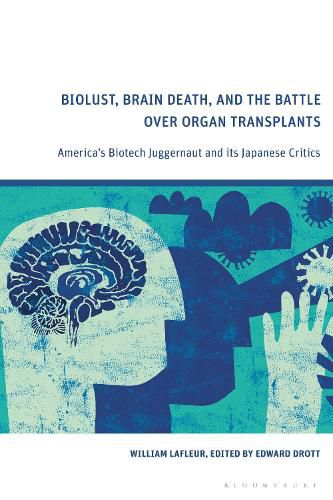Readings Newsletter
Become a Readings Member to make your shopping experience even easier.
Sign in or sign up for free!
You’re not far away from qualifying for FREE standard shipping within Australia
You’ve qualified for FREE standard shipping within Australia
The cart is loading…






In addition to a large body of influential publications, William LaFleur (1936-2010) left behind several unpublished works. The most significant of these examines debates concerning the practice of organ transplantation in Japan and the United States and is published here for the first time.
This provocative book challenges the North American medical and bioethical consensus that considers the transplantation of organs from brain dead donors as an unalloyed good. It joins a growing chorus of voices that question the assumption that brain death can be equated with death. It provides a deep investigation of debates in Japan, introducing numerous Japanese bioethicists whose work has never been treated in English. It also provides a history of similar debates in the United States, problematizing the commonly held view that the American public was quick and eager to accept the redefinition of death.
A work of intellectual and social history, it also directly engages with questions that have become all the more salient in recent years: should limits be placed on the technologies we develop to extend life? If so, where should lines be drawn? LaFleur stakes out a highly original position that does not fall neatly onto either side of the ideological divides easily recognizable in contemporary US culture wars.
$9.00 standard shipping within Australia
FREE standard shipping within Australia for orders over $100.00
Express & International shipping calculated at checkout
In addition to a large body of influential publications, William LaFleur (1936-2010) left behind several unpublished works. The most significant of these examines debates concerning the practice of organ transplantation in Japan and the United States and is published here for the first time.
This provocative book challenges the North American medical and bioethical consensus that considers the transplantation of organs from brain dead donors as an unalloyed good. It joins a growing chorus of voices that question the assumption that brain death can be equated with death. It provides a deep investigation of debates in Japan, introducing numerous Japanese bioethicists whose work has never been treated in English. It also provides a history of similar debates in the United States, problematizing the commonly held view that the American public was quick and eager to accept the redefinition of death.
A work of intellectual and social history, it also directly engages with questions that have become all the more salient in recent years: should limits be placed on the technologies we develop to extend life? If so, where should lines be drawn? LaFleur stakes out a highly original position that does not fall neatly onto either side of the ideological divides easily recognizable in contemporary US culture wars.